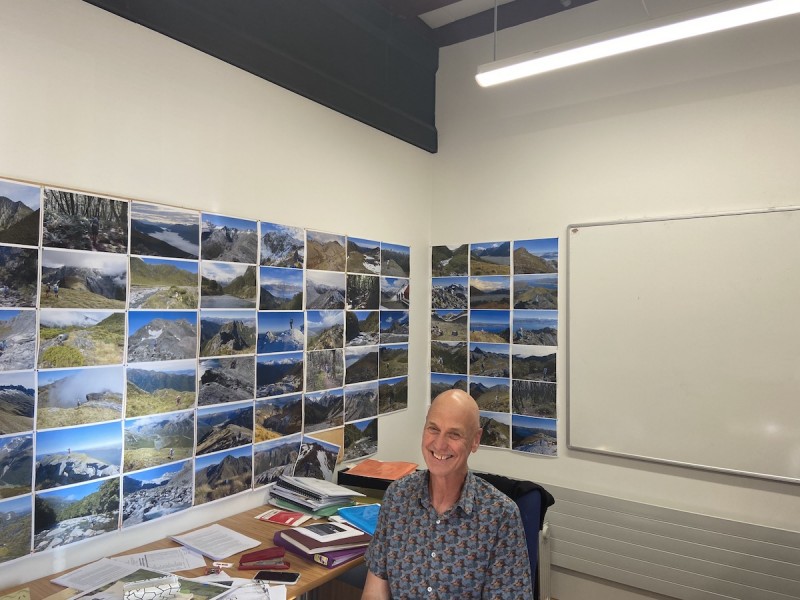Currently, the Department of Conservation (DOC) works under the Conservation Act, which defines conservation as “preservation and protection of natural and historic resources”.
And that’s exactly the problem, says Norton.
He believes New Zealand needs to move from preservation, to sustainability and resilience.
A statute-based approach “fails to recognise” the reality of Aotearoa's landscape, he says.
To further help maintain biodiversity, Norton suggests a shift from extensive rules to education and incentive - especially in regard to private landowners.
“Protection in a legal sense, so tenure change or a rule in a district plan, doesn't guarantee that biodiversity is going to be OK."
Norton suggests a more collaborative approach.
“What we should be doing, is giving landowners respect, talking with farmers, working with them and saying look, this is why [biodiversity] is important.
“Farmers are farmers, they’re really good on pastures or really good with livestock and running a business… but they aren’t ecologists, and we can't expect them to be."
Norton believes education, as well as financial incentive, is the way to help private landowners manage biodiversity.
Green MP and former minister of conservation, Eugenie Sage, disagrees.
“We've had 150 years or more of a voluntary approach… it’s meant wetland destruction, clearance and burning of tussock grasslands,” she said.
Sage acknowledges some landowners for recognising benefits by planting, fencing off waterways and getting involved with conservation.
“But there's still a big tail who need further encouragement through rules, to provide a safety net for nature."
Sage believes the trouble lies with New Zealand’s agricultural tertiary providers.
“One of the problems I think, is agricultural science degrees at Massey and Lincoln [University] do not have a nature-based approach, so you're turning out farmers who don’t necessarily have a good understanding of ecology and working with the land.”
Head of School for agriculture and environment at Massey University, professor Paul Kenyon, says the university trains students to contribute to New Zealand’s primary industry in a “sustainable, responsible and environmentally friendly” way.
“We have many [agriculture] students who take the opportunity to take courses in environmental science and ecology in their degree."
Professor Norton is a frequent explorer of New Zealand’s public conservation land.
Pig rooting, wilding pines and deer sign are a normal sight, and a reminder that New Zealand’s biodiversity continues to decline, he says.
Norton suggests another agency, different to DOC, should be set up to take the reins on policy, funding and advocates for biodiversity conservation across all land tenures.
This would leave DOC to focus on the management of public conservation land, as it “simply doesn’t have the resources” to do it all.
Sage argues DOC doesn’t have too much on its hands.
“That’s a cliché that you hear from Federated Farmers and others,” she said.
"We do not need a new agency; we are cluttered with agencies and organisations... they need to work together better.”
Underfunding, and partnership between agencies is where Norton and Sage do agree.
Despite DOC getting a big funding boost in recent times, Sage says there will never be enough funds for biodiversity protection and conservation.
She uses the partnership example of ‘Te Manahuna Aoraki’, a conservation project in upper Mackenzie Basin and Aoraki/Mount Cook National Park.
Launched in 2018, the project is a collaborative approach between eighteen landowners, DOC and Ngāi Tahu, and aims to enhance biodiversity across 310,000ha.
“That sort of partnership is what’s being encouraged under this Government,” said Sage.


